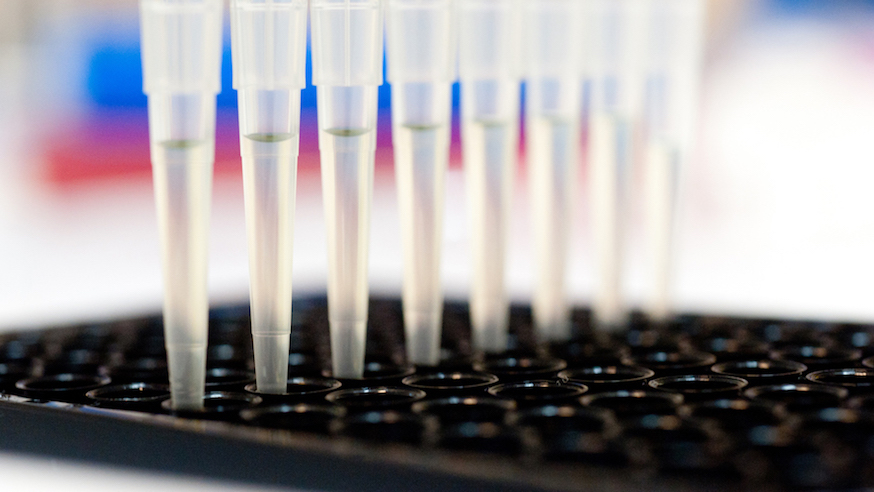
Scientists have identified a protein which is associated with more aggressive breast, colorectal and ovarian cancers, which could be used to assist the diagnosis and development treatments for these cancers.
A team at The Institute of Cancer Research, London, with funding from Worldwide Cancer Research, has uncovered the process by which the protein Dickkopf-3 (DKK3) influences tumour progression by altering how healthy cells, called cancer-associated fibroblasts, act to become tumour-promoting.
This study – published in Nature Communications – examined the role of these cells which exist in the environment surrounding the tumours. They concentrated on the DKK3 protein due to its ability to activate proteins involved in signalling pathways that aid tumour progression.
The researchers found that in cancer-associated fibroblast cells, once activated by DKK3, proteins such as Heat-Shock Factor 1 alter the signalling that cancer cells receive to promote tumour growth. Similarly the activation of the proteins YAP/TAZ promotes cancer cell invasion and the formation of new blood vessels around tumours, two processes which the tumour relies on to survive and spread throughout the body.
These findings demonstrate a previously unknown link between HSF1 and YAP/TAZ. Therefore, DKK3 is a potential target for future drugs against these aggressive cancer types – these drugs could work by preventing the corruption of the cancer-associated fibroblasts, impeding their ability to help the tumour growing and spreading.
The exception to the rule
Dickkopf (DKK) proteins are normally known for their role in preventing cancer development, by interfering with a signalling pathway that has important functions in cancer including tumour growth and spread to different parts of the body, known as the Wnt signalling pathway.
In contrast, the researchers found that the DKK3 protein in cancer-associated fibroblasts promotes tumour growth and spread. Instead of interfering with the Wnt signalling pathway, it enhances it. This in turn leads to increased activation of the YAP/TAZ proteins, as well as the cancer-associated protein β-catenin.
As YAP/TAZ activation promotes tumour growth and invasion, this explains the finding that cancer-associated fibroblasts with higher levels of the DKK3 protein seem to drive the development of more aggressive cancers.
Our latest research shows that within the next decade, we can make acute lymphoblastic leukaemia preventable. Your support will help us make this disease a thing of the past.
Potential target for aggressive cancer treatment
These findings suggest that the discovery of drugs which block the action of DKK3 may have strong therapeutic potential in treating more aggressive cancers.
Dr Fernando Calvo, who led the research as Team Leader in Tumour Microenvironment at the ICR said:
“This study found that the DKK3 protein, unlike other proteins in the DKK family, promotes tumour growth and development, leading to more aggressive cancers of the breast, colon and ovaries.
“The next step is to use the information from this study to develop drugs that target DKK3 to prevent its pro-cancer signalling, and investigate whether they have any therapeutic benefit.”
Dr Calvo is now Team Leader in Tumour Microenvironment at the Institute of Biomedicine and Biotechnology of Cantabria, Spain.